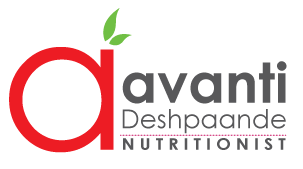Polycystic Ovarian Syndrome (PCOS) and Polycystic Ovary Disease (PCOD) are two terms often used interchangeably, but they represent distinct conditions with unique characteristics. While they share similarities, understanding their differences is crucial for accurate diagnosis and effective management.
Researches show that PCOD is more prevalent than PCOS in parts of South India and Maharashtra, where 22.5% of women are suffering from PCOD and 9.13% of them from PCOS.
In this article, we look into the nuances of PCOD and PCOS, shedding light on their definitions, symptoms, causes, and treatment options.
To begin with, let’s distinguish between a Disease and a Syndrome. The disease is a medical condition with an identifiable cause whereas a Syndrome is a cluster of symptoms that disrupt your body’s normal functioning with multiple unidentifiable causes.

PCOD
PCOD (Polycystic Ovarian Disease) typically results from a combination of hormonal imbalance and genetic predisposition. In a typical menstrual cycle, the ovaries alternately release mature eggs each month, ready for fertilization.
However, in individuals with PCOD, the ovaries often release immature or partially mature eggs, which can develop into cysts that are small sacs filled with fluid.
This results in swelling and enlargement of the ovaries. The ovaries also begin to produce excess androgens, leading to symptoms such as male pattern hair loss, abdominal weight gain, irregular periods, and sometimes infertility in severe cases.

While there’s no definitive cure for PCOD, one of the most effective ways to manage it is by making lifestyle changes after consulting professionals such as gynecologists, endocrinologists, and dietitians.
Regular exercise and a healthy diet (low in sugars and simple carbohydrates, high in protein and fiber) are key to controlling PCOD. These changes also help reduce weight gain, which is beneficial because many researches show that even a 5% reduction in weight significantly improves treatment outcomes.
Treatment modalities depend from case to case where sometimes hormone-balancing medication may be prescribed. In some instances, second-line therapies such as laparoscopic surgery, ovarian drilling, or aromatase inhibitors may be necessary, although these are less common.
Additionally, individuals may seek treatment from other specialists to address specific symptoms, such as acne and hair loss induced by PCOD, which can often be managed with dermatological treatments. While most cases can expect a relatively smooth pregnancy after minimal assistance with conception, around 20% of cases (based on data from Indian women) may require fertility drugs or other fertility-enhancing treatments if they wish to conceive.
PCOS
PCOS is an endocrine disorder that shares many symptoms with PCOD, such as weight gain, infertility, acne, and irregular periods. Unlike PCOD, here the cysts are buildup in ovaries. Additionally, PCOS is a cluster of metabolic syndrome, insulin resistance, irregular menstrual cycle called dysmenorrhea, and hormonal imbalance which collectively increases the risk of heart disease, strokes, and diabetes. It can also lead to sleep apnea, disrupting the body’s breathing during sleep and resulting in disturbed sleep cycles characterized by sudden pauses in breathing or difficulty breathing. Furthermore, the lack of ovulation in PCOS causes the uterine lining to thicken each month, raising the risk of endometrial cancer.
Treatment for PCOS typically involves taking oral contraceptives containing estrogen and progestin (progesterone mimicking) to regulate the menstrual cycle and manage certain symptoms. Additional medications may be prescribed to reduce the risk of endometrial cancer and diabetes, as well as to address acne and skin issues. Adopting a healthier lifestyle and achieving weight loss can also complement the treatment process for PCOS.

Conclusion
In conclusion, while PCOD and PCOS may share a common acronym and overlapping symptoms, they represent distinct entities with their unique nuances. Ovarian cysts and menstrual irregularities characterize PCOD, while PCOS is a multifaceted complex disorder that encompasses a broad spectrum of hormonal imbalance and metabolic dysfunction.
By learning more about PCOD and PCOS, we can help people understand and manage these health challenges better, leading to more comprehensive care and support for women’s health with clarity and confidence, and fostering a holistic approach to diagnosis, management, and care.

References
- https://www.ncbi.nlm.nih.gov/pmc/articles/PMC8533511/
- https://www.sciencedirect.com/science/article/pii/S1756464622004352#:~:text=Dietary%20antioxidants%20play%20a%20vital,antioxidants%20on%20the%20gut%20microbiome.
- https://www.mdpi.com/2673-9801/2/3/25
- https://www.medicalnewstoday.com/articles/307998
- https://www.ncbi.nlm.nih.gov/pmc/articles/PMC3781198/#:~:text=Vitamin%20E%2C%20vitamin%20C%2C%20and,stress%20in%20patients%20with%20IBS.
- https://www.mdpi.com/2076-3921/10/3/412
- https://www.sciencedirect.com/science/article/pii/S2352345X21000400#:~:text=Microbial%20metabolites%20produced%20in%20the,cells%20and%20impact%20host%20health.&text=Further%2C%20they%20have%20been%20shown,integrity%20itself%20and%20intestinal%20homeostasis.




